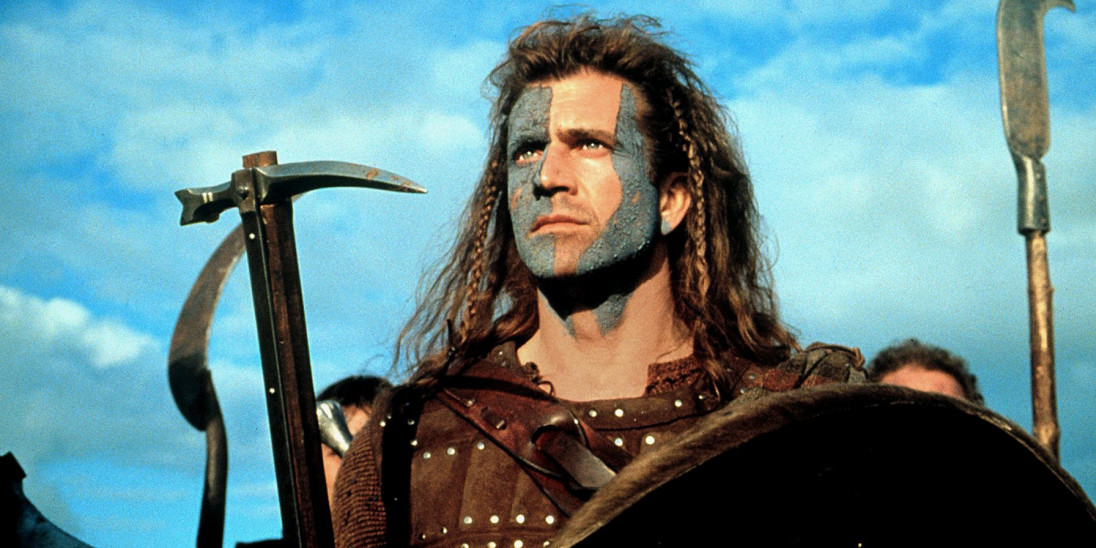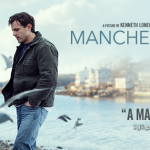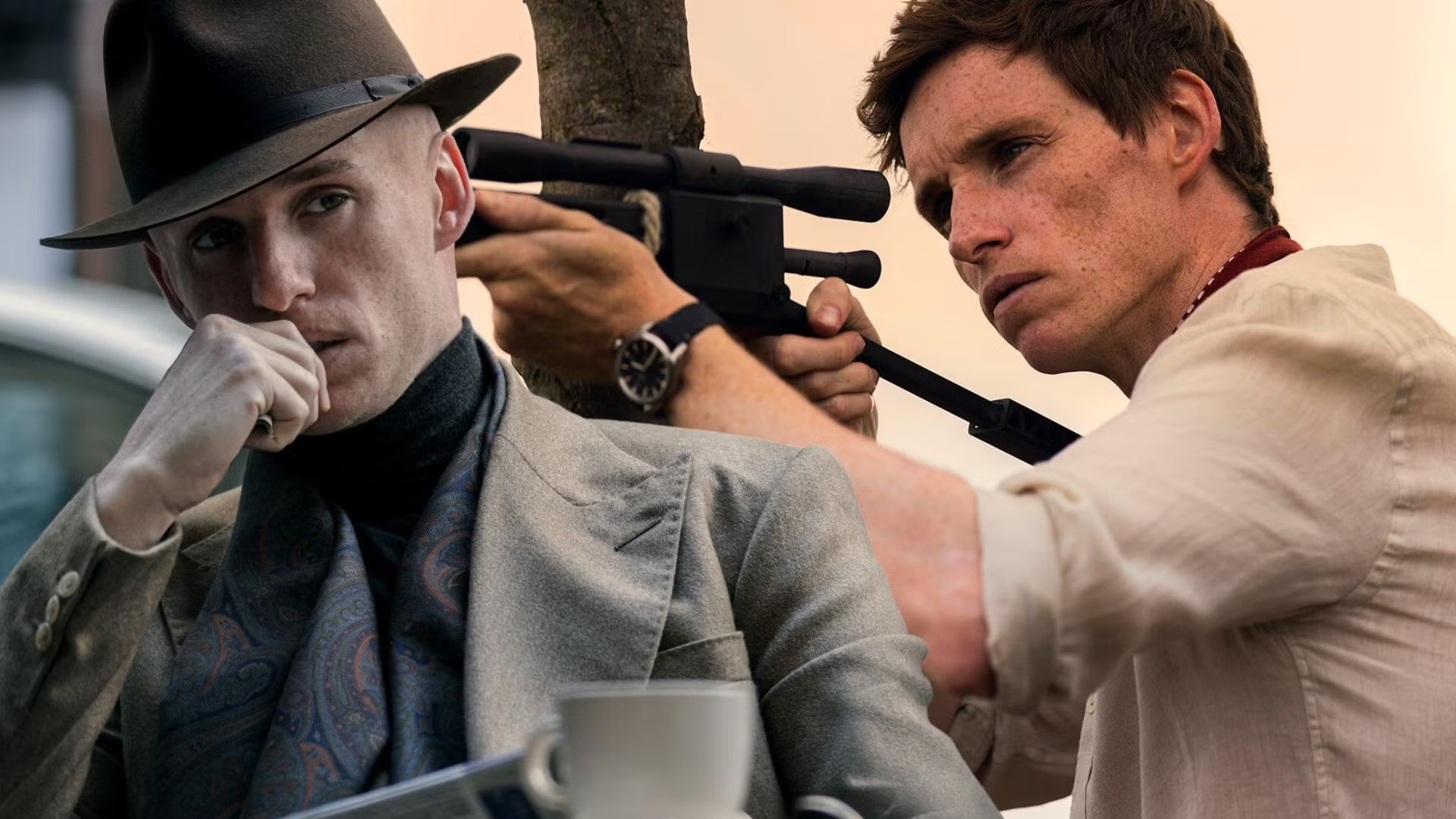Braveheart (1995)


“Braveheart” is a monumental 1995 epic historical drama directed by and starring Mel Gibson. The film narrates the heroic tale of William Wallace, a 13th-century Scottish knight who becomes the emblematic leader of Scotland’s struggle for independence against oppressive English rule. Renowned for its sweeping landscapes, intense battle sequences, and emotionally charged storytelling, “Braveheart” has left an indelible mark on the genre of historical epics.
Plot Summary
The narrative of “Braveheart” follows the life of William Wallace, portrayed by Mel Gibson, from his early years as a young man living a peaceful life in the Scottish Highlands to his transformation into a legendary freedom fighter. After witnessing the brutal murder of his wife by English soldiers, Wallace is consumed by a desire for revenge. This personal tragedy ignites his passion to challenge the tyrannical rule of King Edward I of England.
Wallace’s journey is marked by strategic alliances, including his relationship with Princess Isabelle, played by Sophie Marceau, and the support of fellow Scots who rally behind his cause. As Wallace leads his compatriots in guerrilla warfare against the English forces, the film delves into the complexities of leadership, sacrifice, and the relentless pursuit of liberty. The climax culminates in the iconic Battle of Stirling, where Wallace’s tactical genius and unyielding spirit inspire his men to fight against overwhelming odds.
Themes
“Braveheart” is rich with themes of freedom, sacrifice, and the fight against oppression. The film delves into the personal cost of war, the burdens of leadership, and the enduring human spirit’s quest for independence. Through Wallace’s character, the narrative explores the idea that true heroism is born from love, loss, and the unwavering commitment to a greater cause.

Visuals and Direction
Visually, “Braveheart” is striking, showcasing the breathtaking landscapes of the Scottish Highlands. The grand battle sequences are meticulously crafted to emphasize the brutality and chaos of medieval warfare, utilizing expansive shots that capture both the scale of the conflict and the individual valor of the warriors. Mel Gibson’s direction masterfully blends intense action with poignant emotional moments, creating a seamless narrative that balances spectacle with intimacy.
Performances
Mel Gibson delivers a passionate and nuanced performance as William Wallace, embodying the character’s fierce determination and deep sense of justice. His portrayal brings a relatable humanity to a legendary figure, making Wallace’s struggles and triumphs resonate deeply with audiences. Sophie Marceau as Princess Isabelle adds emotional depth to the story, portraying a character torn between duty and personal desire. Patrick McGoohan’s depiction of King Edward I provides a formidable antagonist, highlighting the personal and political conflicts that drive the narrative forward.
The supporting cast, including actors like Catherine McCormack and Brendan Gleeson, contribute to the film’s rich tapestry of characters, each adding layers to the story’s exploration of loyalty, honor, and sacrifice.
Music and Score
James Horner’s evocative score plays a pivotal role in heightening the film’s emotional impact and grandeur. The stirring melodies underscore key moments of triumph and tragedy, enhancing the overall cinematic experience. The music seamlessly integrates with the narrative, amplifying the tension and elevating the heroic undertones of Wallace’s journey.
Critical Reception

Upon its release, “Braveheart” received widespread acclaim for its ambitious storytelling, compelling performances, and stunning visuals. Critics lauded Mel Gibson’s dual role as director and lead actor, praising his ability to balance epic action with heartfelt drama. The film’s realistic battle scenes and emotional depth were highlighted as standout elements that set it apart from other historical epics.
While some historians noted liberties taken with historical accuracy, the film was celebrated for its ability to inspire and engage audiences through its universal themes and relatable characters. “Braveheart” became a cultural phenomenon, sparking renewed interest in Scottish history and the enduring legacy of William Wallace.
Box Office and Legacy
“Braveheart” achieved significant box office success, grossing over $200 million worldwide against a budget of approximately $65 million. Its popularity extended beyond theaters, influencing popular culture and inspiring future generations of filmmakers and storytellers.
The film’s legacy is cemented by its five Academy Awards, including Best Picture and Best Director, among others. “Braveheart” continues to be celebrated as a classic in the historical drama genre, remembered for its powerful narrative, memorable performances, and its stirring portrayal of the fight for freedom.
Conclusion
“Braveheart” stands as a testament to the power of storytelling in capturing the essence of heroism and the human spirit’s resilience. Through Mel Gibson’s visionary direction and compelling performances, the film offers a captivating and emotionally resonant portrayal of William Wallace’s quest for Scottish independence. Its enduring impact on audiences and its place in cinematic history underscore “Braveheart” as a quintessential epic that continues to inspire and move viewers around the world.











